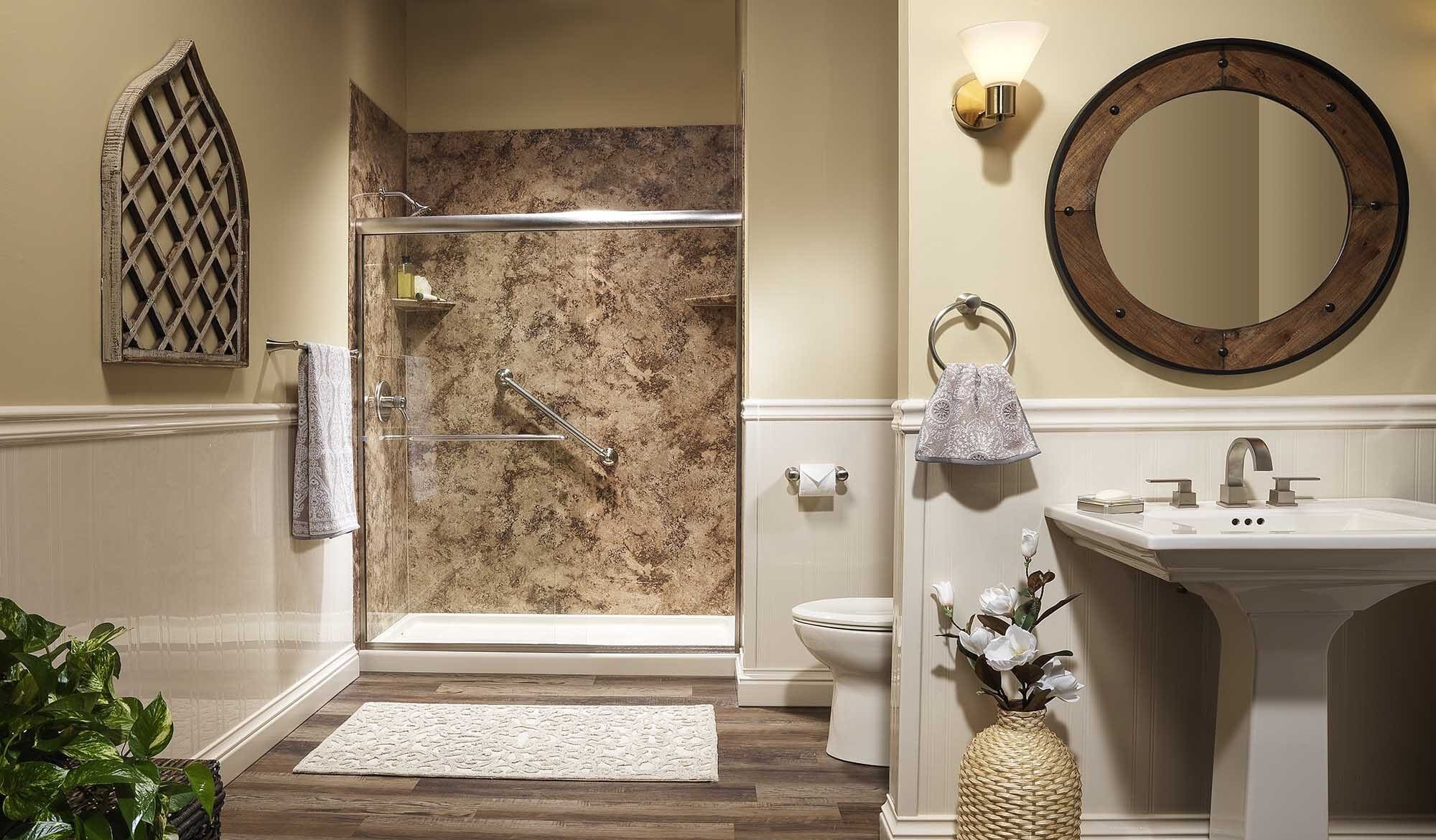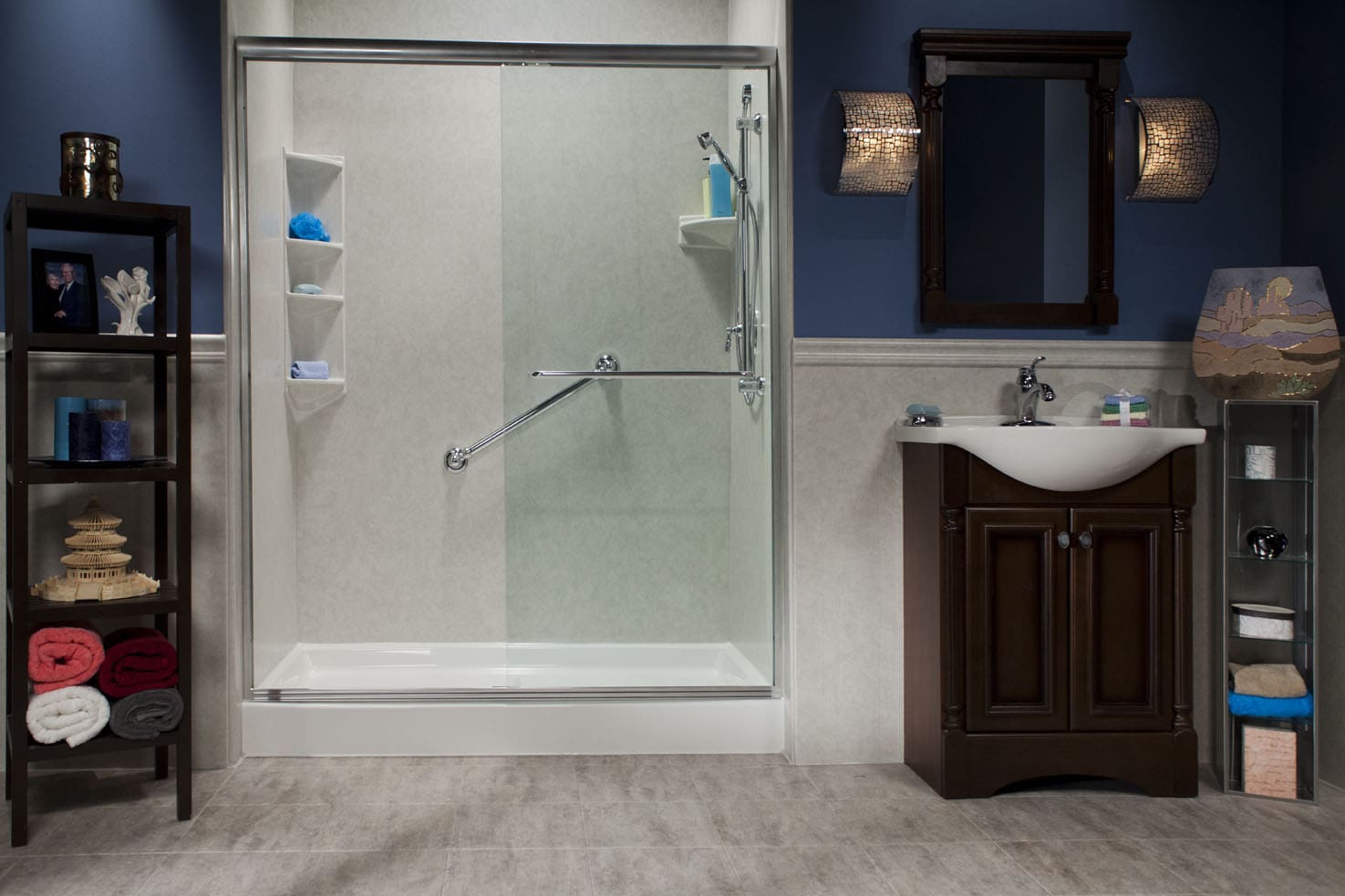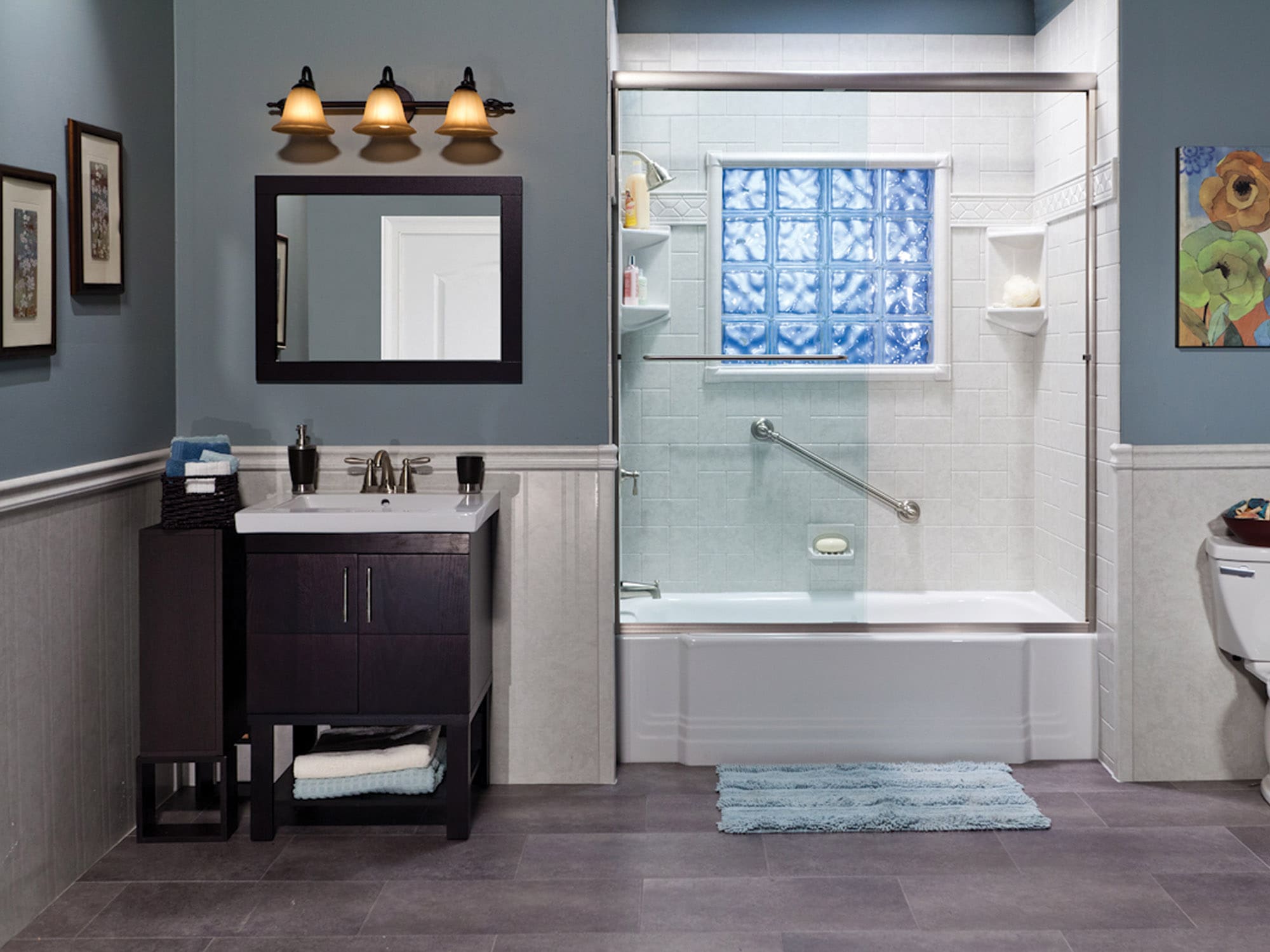Choosing the right bathtub material can feel overwhelming. With so many options on the market, how do you know which one will hold up to Western Massachusetts winters, fit your budget, and match your style?
The truth is, not all bathtub materials are created equal. Some are better suited for cold climates, while others prioritize aesthetics over durability. Whether you’re planning a full bathroom renovation or a simple bathtub replacement in MA, understanding the pros and cons of each material will help you make a confident decision.
In this guide, we’ll break down the most popular bathtub materials, explore what makes each one unique, and help you determine which option is the best fit for your home.
Key Takeaways
- Acrylic bathtubs are lightweight, affordable, and retain heat well—making them a popular choice for Western MA homeowners.
- Cast iron tubs offer unmatched durability and a classic look, but they’re heavy and require professional installation.
- Fiberglass tubs are budget-friendly but less durable, while stone resin and solid surface options provide a luxurious feel with modern appeal.
Why Your Bathtub Material Matters
Your bathtub does more than just hold water. It affects your bathroom’s comfort, maintenance needs, and resale value. In Western Massachusetts, where temperatures can drop well below freezing, choosing a material that retains heat and resists cracking is especially important.
Beyond climate considerations, you’ll also want to think about:
- Durability: Will the material withstand daily use and resist scratches or chips?
- Maintenance: How easy is it to clean and keep looking new?
- Cost: Does it fit within your budget, including installation?
- Aesthetic: Does it complement your bathroom’s design?
Let’s explore the most common bathtub materials and how they stack up.
Acrylic: The Most Popular Choice
Acrylic bathtubs are made from heated plastic sheets that are molded into shape and reinforced with fiberglass. They’re the most common option in modern bathrooms, and for good reason.
Pros
- Lightweight: Easier to install and maneuver, which can reduce labor costs.
- Heat retention: Keeps water warm longer than fiberglass or steel.
- Affordable: Generally less expensive than cast iron or stone resin.
- Variety: Available in many colors, shapes, and sizes.
- Easy to clean: Non-porous surface resists stains and mildew.
Cons
- Can scratch: While durable, acrylic is more prone to scratches than harder materials.
- Less rigid: Lower-quality acrylic tubs may flex slightly under weight.
Best For
Homeowners looking for a cost-effective, versatile option that performs well in cold climates. If you’re working with a bathroom contractor in Chicopee MA, acrylic is often recommended for its balance of quality and affordability.
Cast Iron: The Timeless Classic
Cast iron bathtubs are coated with a layer of enamel, giving them a smooth, glossy finish. They’ve been a staple in American homes for over a century.
Pros
- Extremely durable: Can last 50+ years with proper care.
- Excellent heat retention: Keeps bathwater warm for extended periods.
- Luxurious feel: Heavy and solid, with a classic aesthetic.
- Resistant to scratches and chips: The enamel coating is tough and long-lasting.
Cons
- Very heavy: Requires reinforced flooring and professional installation.
- Expensive: Higher upfront cost for both the tub and installation.
- Limited styles: Fewer modern designs compared to acrylic or stone resin.
Best For
Homeowners who want a timeless, high-end bathtub and don’t mind the extra investment. Cast iron is ideal for historic homes or bathrooms with a vintage-inspired design.
Fiberglass: The Budget-Friendly Option
Fiberglass tubs are made by layering fiberglass-reinforced plastic over a mold. They’re one of the most affordable options available.
Pros
- Low cost: Great for tight budgets or rental properties.
- Lightweight: Easy to transport and install.
- Quick installation: Often arrives as a one-piece unit.
Cons
- Less durable: Prone to cracking, fading, and surface wear over time.
- Poor heat retention: Water cools down faster than in acrylic or cast iron tubs.
- Difficult to repair: Damage often requires full replacement.
Best For
Homeowners on a strict budget or those looking for a temporary solution. Fiberglass works well for guest bathrooms or quick flips, but it’s not ideal for long-term use.
Stone Resin: The Luxury Upgrade
Stone resin bathtubs are made from a blend of natural stone and resin, creating a solid, sculptural piece. They’ve become increasingly popular in high-end bathroom designs.
Pros
- Stunning aesthetics: Modern, sleek, and available in matte or glossy finishes.
- Excellent heat retention: Stays warm longer than most materials.
- Durable: Resistant to scratches, stains, and UV damage.
- Freestanding options: Perfect for creating a spa-like focal point.
Cons
- Heavy: Requires structural support, similar to cast iron.
- Expensive: One of the priciest bathtub materials on the market.
- Limited repair options: Difficult to fix if damaged.
Best For
Homeowners investing in a luxury bathroom renovation who want a statement piece. Stone resin bathtubs work beautifully in contemporary or minimalist designs.
Solid Surface: The Modern Alternative
Solid surface bathtubs are made from acrylic or polyester resins mixed with minerals. They offer a seamless, high-end look without the weight of stone resin.
Pros
- Non-porous: Resists mold, mildew, and bacteria.
- Repairable: Minor scratches and damage can often be buffed out.
- Customizable: Can be molded into unique shapes and integrated with surrounds.
- Good heat retention: Keeps water warm longer than fiberglass.
Cons
- Moderate cost: More expensive than acrylic but less than stone resin.
- Can discolor: May yellow over time with certain cleaning products.
Best For
Homeowners who want a modern, low-maintenance tub with a custom feel. Solid surface is a great middle-ground option for those who want luxury without the highest price tag.
Which Bathtub Material Is Right for You?
The best bathtub material depends on your priorities. Here’s a quick guide to help you decide:
- Budget-conscious? Go with fiberglass or acrylic.
- Want long-term durability? Choose cast iron or stone resin.
- Cold climate concerns? Acrylic, cast iron, and stone resin all retain heat well.
- Looking for a modern aesthetic? Stone resin or solid surface offers sleek, contemporary designs.
- Need a quick installation? Fiberglass or acrylic tubs are your best bet.
If you’re still unsure, consulting with a bathroom contractor in Chicopee MA can help you weigh your options based on your home’s specific needs.
Making the Right Investment for Your Home
Replacing a bathtub is a significant investment, but choosing the right material ensures you’ll enjoy it for years to come. Whether you prioritize durability, style, or cost, there’s a bathtub material that fits your needs.
At Inaugural Home Improvement, we specialize in bathtub replacement in MA and can help you find the perfect option for your Western Massachusetts home. From selecting the right material to professional installation, we’re here to make your bathroom renovation as smooth as possible.
Ready to upgrade your bathroom? Contact Inaugural Home Improvement today to schedule a consultation and explore your bathtub options.






